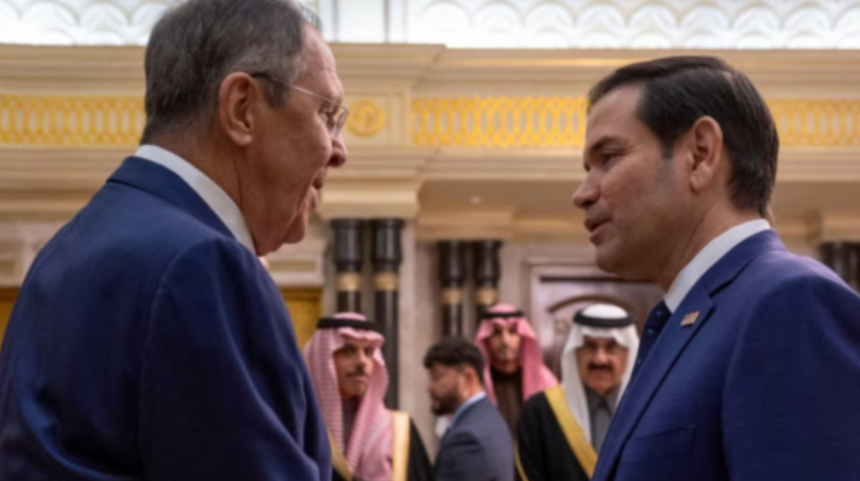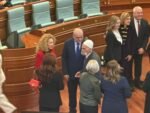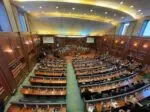The United States and Russia agreed on Tuesday to restore the normal operation of their diplomatic missions, said US Secretary of State Marco Rubio following high-level talks between American and Russian officials held in Saudi Arabia.
The decision appeared to be a significant signal in easing the restrictions placed on Russian diplomatic missions, restrictions that were imposed by previous administrations due to Russia’s large-scale attack on Ukraine and other Russian actions.
The talks in Riyadh aimed to take a step forward in ending the war in Ukraine, as President Donald Trump, who took office last month, instructed top officials to begin negotiations. Rubio stated that the parties had agreed that the first step would be to appoint teams of officials who would “work swiftly to restore the functioning of their diplomatic missions.”
Over the past decade, the two countries have expelled diplomats and limited the sending of new personnel to their respective diplomatic missions in a series of retaliatory decisions, leading to both embassies operating with limited staff.
Rubio said such decisions have “severely reduced our ability to operate in Moscow,” and that the same was true for Russia’s diplomatic mission in Washington.
In an interview with the Associated Press, Rubio noted that it was essential for diplomatic missions to be able to operate normally but declined to comment publicly on the specifics of how this would happen.
The US State Department did not respond to a request for comment from Reuters regarding the current operations of the US embassy in Russia.
Russia’s Ministry of Foreign Affairs stated that Foreign Minister Lavrov raised concerns about the functioning of Russian diplomatic missions in the United States during a conversation with his counterpart Rubio on Saturday, before today’s talks in Riyadh.
Even before Russia’s large-scale attack on Ukraine in 2022, the United States had expressed that it could maintain only a small presence in Russia, as Moscow imposed restrictions on personnel in American missions, forcing Washington to close and suspend consulates in Vladivostok and Yekaterinburg.







